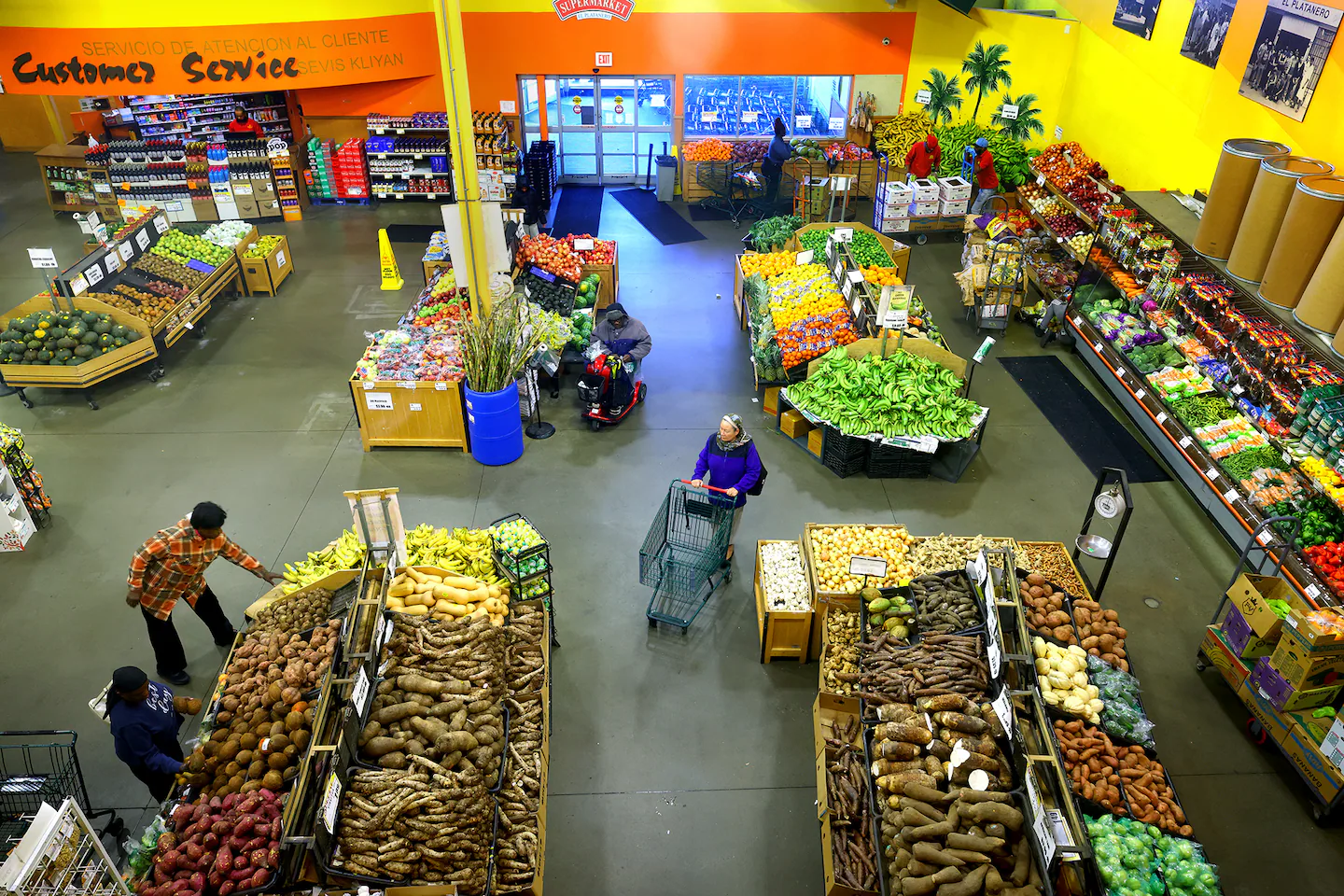Copyright The Boston Globe

“We’re just trying to survive,” she said. It’s a common fear among food sellers and other businesses that serve SNAP recipients, who’ve watched as last week a federal judge ordered the Trump administration to keep the benefits flowing, then saw President Trump first signal Monday that half-payments would be coming, then post Tuesday to Truth Social that he would deny payments until the “Radical Left Democrats open up government, which they can easily do, and not before!” (The White House later said it would comply with the court order.) Aliza Wasserman, who directs the Mayor’s Office of Food Justice for the City of Boston, said she began hearing from concerned business owners over the weekend, as shoppers flocked to stores to stock their pantries ahead of SNAP benefits ending on Saturday. Many were paying with cash, she said, and “a lot of people didn’t necessarily know exactly what was happening.” Boston has about 140,000 people in 90,000 households who receive SNAP. “As of Saturday, these families have started to really suffer, and this has ripple effects on stores throughout the city,” Wasserman said. Not having those funds will force many store owners to make tough choices. “This impacts their payroll, their ability to pay rent.” Ronn Garry, owner and president of Tropical Foods in Roxbury, gathered with other local SNAP-dependent food sellers in Bowdoin Geneva on Monday for a roundtable discussion hosted by Representative Ayanna Pressley. He was seated just a few chairs over from the congresswoman when news broke that the Trump administration would release a portion of the federal SNAP food aid for the month of November. That fact did little to ease concerns for those gathered. “It feels like they’re spoiling for a fight,” Garry said of the administration’s will-they-or-won’t-they tactics. “And we’re just pawns in their larger game.” Thirty percent of Tropical Foods’ shoppers use SNAP, Garry said, and he saw sales spike at the end of the month as people stocked up in anticipation of the cuts. Garry said he thinks he can weather things if the SNAP benefits are delayed for a few days, but if it stretches on for weeks or months, everyone is going to be feeling the pain. “If we start getting into a holiday season and people have gone weeks without food in their cabinets, it’s going to really be concerning,” he said. “Just like our customers, the bills don’t stop just because everything else stops.” Across New England, $364 billion a month flows through SNAP, said Keenan Marchesi, an economist at Datassential. That doesn’t just help corner stores or groceries. Farmers also benefit from SNAP because it generates consistent demand throughout the year, said Kristina Pechulis, executive director of the Massachusetts Food System Collaborative, an advocacy group based in Greenfield. And for every dollar spent on SNAP, $1.50 flows into the region’s economy. “SNAP is an economic multiplier,” she said. “Therefore any change to SNAP hurts retailers like farmers who purchase local goods and services, and it also limits access to food for some of our most vulnerable neighbors.” Meanwhile, food prices keep rising, up 0.3 percent from August. That’s forcing already strapped families to make difficult decisions about what to buy at the supermarket. “It’ll be a trade-off of what can last, what can feed their families and what would be nutritionally beneficial,” Marchesi said. “And none of that is easy on a normal day.” SNAP brings in $2.7 billion dollars annually, spent at over 5,500 retailers in Massachusetts, said Erin McAleer, the president and CEO of Project Bread, a Boston-based nonprofit that provides food assistance in the region. One in five residents statewide uses SNAP benefits to help cover the cost of food. And while the SNAP program today is primarily thought of as a social program for low-income households, it was originally envisioned in the 1960s not just as a food subsidy, but as an economic engine. “That’s why it used to be bipartisan,” said McAleer, who worked in Governor Mitt Romney’s finance office, during the George W. Bush administration, to make sure more people in Massachusetts were on food assistance programs. She said Romney at the time realized that if he wanted to stimulate the state’s economy he needed more people participating. Most SNAP recipients are workers, she said, even more so because of a recent policy change under the Trump administration that requires more people to work to qualify to receive SNAP. That change, passed under the One Big Beautiful Bill Act, went into effect on Saturday. ”Your day care or home health care worker or the staff at your favorite restaurant. They’re those folks who are working and not making reliable wages,” McAleer said. “The ripple effects are just absolute, and unfortunately we don’t know what they’re going to be.” William Masters, a professor of food policy and economics at Tufts University, said hardships won’t just be felt by SNAP recipients or the stores that serve them. They’ll likely stretch throughout the community, as families make choices about how best to spend their limited funds. Landlords might not get rent. Car dealerships might not see sales or monthly payments. Child care providers may see families pull back on their hours. “People will likely begin reallocating funds from other things to afford groceries,” he said. “A lot of the pain will be felt by people selling other things to the SNAP recipients’ population.” That includes retailers such as Sonia Satchell, who owns Irie Jamaican Style restaurant on Dorchester Avenue in Fields Corner. While she doesn’t accept SNAP benefits, she too is feeling the fallout, with fewer customers coming in for lunch and dinner. “With the shutdown, people are even more so watching their dollar,” she said. She feels it in her pocketbook, too. Satchell said she’s always had a $5 special chicken and rice plate, and is selling far more of them lately. But now she’s considering cutting back on portion sizes to cut costs. She sat in the parking lot of BMS Paper in Jamaica Plain Tuesday morning, trying to figure out how she could budget for cheaper take-out containers. Invoices were piling up that she couldn’t afford to pay. Satchell’s been working more since her sister, the restaurant’s co-owner and head chef, recently stepped away to begin kidney dialysis. Satchell is paying a cook to fill in, which is upping costs. “I’ve had to apply for SNAP benefits for my sister because of her current situation,” she said. The sister started receiving the funds a few months ago. But now, that money is gone, too.



